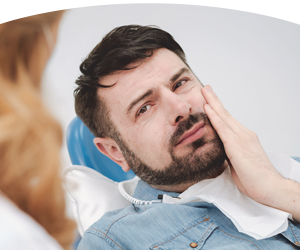
Please note – in this section, bleeding refers to bleeding following extraction which will not stop. This does not refer to bleeding gums (for instance following brushing).
If you notice profuse bleeding that is oozing intensively, you ought to seek urgent dental/medical care.
In some patients, bleeding may not stop following extraction. This could be because:
If you suspect any of the above, always notify your dentist before any dental treatment.
If you’re on blood thinners and have undergone a tooth extraction, it is important to take the extra precautions below to stop bleeding and prevent complications:
If bleeding persists for more than a few hours or is excessive, contact your dentist or doctor immediately.
In some cases, they may need to take additional steps to stop the bleeding, such as applying a topical medication or placing a suture.
Pain and/or swelling following extraction can often be expected. If you are particularly worried, then revisit the dentist who carried out the extraction
One of the more common reasons for pain after extraction includes ‘dry socket’. This results following extraction whereby the blood clot fails to form or is dislodged.
The pain (or the worst of it) will often come on a few days after the extraction and will be very severe.
Some of the things that increase the chance of dry socket include smoking and rinsing out immediately following the extraction.
If you suspect dry socket we would advise you see your dentist.
After following the self-help advice, if the bleeding persists or you are taking blood thinners then seek urgent medical or dental care.
© 2025 Dental Triage Ltd - All rights reserved | Website Updated Apr/2025
Website Design by Pivotal Marketing